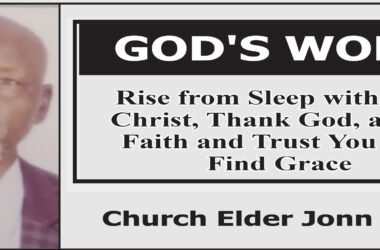By Gama Hassan Oscas
In the bustling streets of Juba, South Sudan’s capital city, a heart-rending and stark contrast unfolds before our eyes. On one end, the destitute, struggle to secure their next meal, scavenging from heaps of garbage for survival. On the other; a select few revel in opulence, flaunting their luxury V8s and indulging in excess without having earned their possessions through hard work.
The profound disparity in Juba’s society exposes the deep-rooted issue of social inequality, where the government and the affluent elite appear ignorant of the struggles faced by the majority.
This analytical opinion piece delves into the complexities of the distressing reality, questioning why Juba’s poor are reduced to feeding from garbage while the privileged few enjoy lives of abundance without any apparent effort.
The sight of Juba’s impoverished, resorting to scavenging from garbage dumps for sustenance, is a striking symbol of the systemic failure to address the needs of the marginalized. The alarming juxtaposition of extreme wealth and dire poverty exemplifies the inequitable distribution of resources and opportunities. It reflects the government’s inability or unwillingness to implement effective policies that address the root causes of poverty and uplift the most vulnerable in society.
The impoverished individuals who risk their lives by entering deep into the garbage heaps while trucks are offloading or dumping epitomize the desperation faced by those living on the fringes of society.
The allure of finding edible items amid the waste overshadows the imminent danger they face. Tragically, some of them remain unseen to the truck drivers during the hazardous process of reversing to dump, and the drivers are oblivious to the lives they put at risk in their quest for survival.
Additionally, many of the poor choose to shelter near the dumping sites, as it allows them easy access to food when the trucks arrive early in the morning. The fact that individuals are forced to rely on discarded food from waste heaps paints a grim picture of the inadequacy of social safety nets and public welfare programs. It raises questions about the government’s priorities and its commitment to addressing the plight of the less fortunate.
The stark contrast between the destitute scavenging for sustenance and the affluent elite indulging in lavish parties, expensive marriages, and driving luxury cars with entourages of huge convoys highlights the deeply entrenched divide between the haves and the have-nots. The irony of this situation is especially troubling in a country blessed with abundant natural resources, yet the majority of its population struggles to secure their basic needs.
The government of the day bears a significant responsibility in addressing this alarming inequality. Its failure to understand or even acknowledge the struggles of the majority poor South Sudanese is a clear indication of the disconnect between the ruling elite and the common citizens. The government’s seeming indifference to the hardships faced by the impoverished further deepens the chasm between the two groups.
The affluent minority in power enjoys unrestricted access to public coffers, leading to an accumulation of wealth without any evident effort. This, combined with the lack of transparency and accountability, fosters an environment where corruption thrives, and resources are diverted away from programs aimed at uplifting the poor. As the privileged few bask in their wealth, they seem to be oblivious to the reality of market prices and deteriorating living conditions faced by the majority.
Furthermore, the shameless display of opulence by some members of the elite, even when attending religious services, raises ethical and moral questions. The ostentatious behavior exhibited in places of worship stands in stark contrast to the teachings of humility, compassion, and empathy found in many religious doctrines. This lack of sensitivity towards the less fortunate within their own community highlights a concerning lack of social responsibility among the affluent class.
Addressing this glaring social inequality requires a comprehensive and multi-faceted approach. First and foremost, the government must prioritize poverty alleviation and social welfare programs that provide basic necessities to the most vulnerable. This includes initiatives for food security, affordable housing, access to education, and healthcare for all citizens.
Effective and accountable governance is crucial in ensuring that public resources are utilized to benefit the entire population, rather than being hoarded by the privileged few. Transparent budgeting and robust anti-corruption measures can help redirect public funds towards initiatives that uplift the marginalized.
Moreover, economic policies should be tailored to promote inclusive growth and job creation. Equitable access to opportunities in education and employment can enable individuals to break the cycle of poverty and achieve upward mobility.
The media also plays a critical role in shedding light on the plight of the poor and holding those in power accountable. By highlighting the disparities and advocating for the rights of the marginalized, the media can mobilize public support for change.
Ultimately, a fundamental shift in societal values and attitudes is essential in creating a more compassionate and empathetic community. Promoting a culture of social responsibility and encouraging the affluent to actively contribute to the welfare of the less fortunate can bridge the gap between the two segments of society.
In conclusion, the distressing reality of Juba’s social inequality demands urgent attention and action. The dire circumstances faced by the poor, who resort to scavenging from garbage dumps for sustenance, stand in stark contrast to the extravagant lifestyles of the affluent few. The government’s failure to address this inequality and the lack of social responsibility among the privileged minority deepen the divide between the two groups.
Transformative change requires comprehensive policies that prioritize poverty alleviation, transparent governance, and economic opportunities for all. Moreover, a shift in societal values that embraces compassion and empathy can foster a more equitable and inclusive community. Only through concerted efforts and a genuine commitment to addressing inequality can Juba become a city where all its inhabitants have the opportunity to thrive and prosper.
The author of this author is an advocate and can be reached on email: oscarsgama@gmail.com



